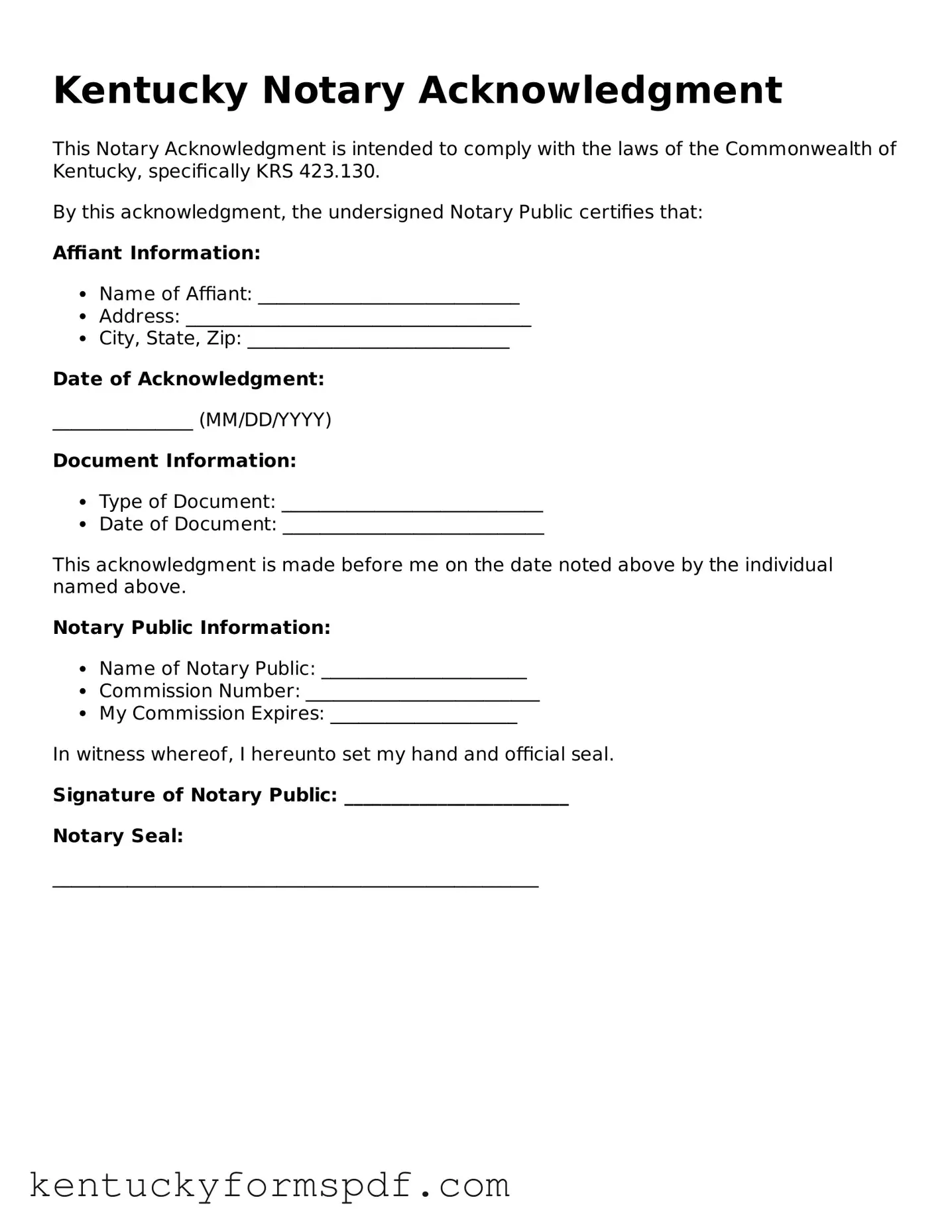What is a Kentucky Notary Acknowledgement form?
The Kentucky Notary Acknowledgement form is a legal document that serves as proof that a signer has willingly signed a particular document in the presence of a notary public. This form is essential for various legal transactions, ensuring that the identity of the signer is verified and that they are acting voluntarily without any coercion. It provides a layer of protection for both the signer and the parties relying on the document.
Who can serve as a notary public in Kentucky?
In Kentucky, individuals who wish to become a notary public must meet specific requirements. These include being at least 18 years old, being a resident of Kentucky or having a place of employment in the state, and having no felony convictions. Once these criteria are met, individuals must complete an application and receive a commission from the Secretary of State to legally perform notarial acts.
What is the process for completing a Notary Acknowledgement?
To complete a Notary Acknowledgement in Kentucky, the signer must first appear before the notary public. The signer will then present the document that requires acknowledgment. The notary will verify the identity of the signer, often through a government-issued ID, and confirm that the signer understands the document's contents. Once these steps are completed, the notary will sign and stamp the document, indicating that the acknowledgment has been properly executed.
Is there a fee associated with notarization in Kentucky?
Yes, notaries in Kentucky are permitted to charge a fee for their services. The maximum fee that a notary can charge for an acknowledgment is set by state law. It is important for individuals seeking notarization to inquire about the fee beforehand to avoid any misunderstandings. Notaries may also offer additional services, which could incur separate charges.
Can a Notary Acknowledgement be performed remotely in Kentucky?
In recent years, Kentucky has embraced remote notarization, allowing notaries to perform acknowledgments via audio-visual technology. However, specific regulations govern this practice, and notaries must adhere to guidelines set by the state. Remote notarization offers convenience, especially for individuals who may have difficulty accessing a notary in person, but it is crucial to ensure that all legal requirements are met during the process.
What should I do if I suspect fraud in a notarized document?
If you suspect that a notarized document has been executed fraudulently, it is essential to act promptly. Gather any evidence that supports your claim and report the situation to the appropriate authorities, such as local law enforcement or the Kentucky Secretary of State's office. They can provide guidance on the next steps to take. It is vital to address such concerns seriously, as they can have significant legal implications.

